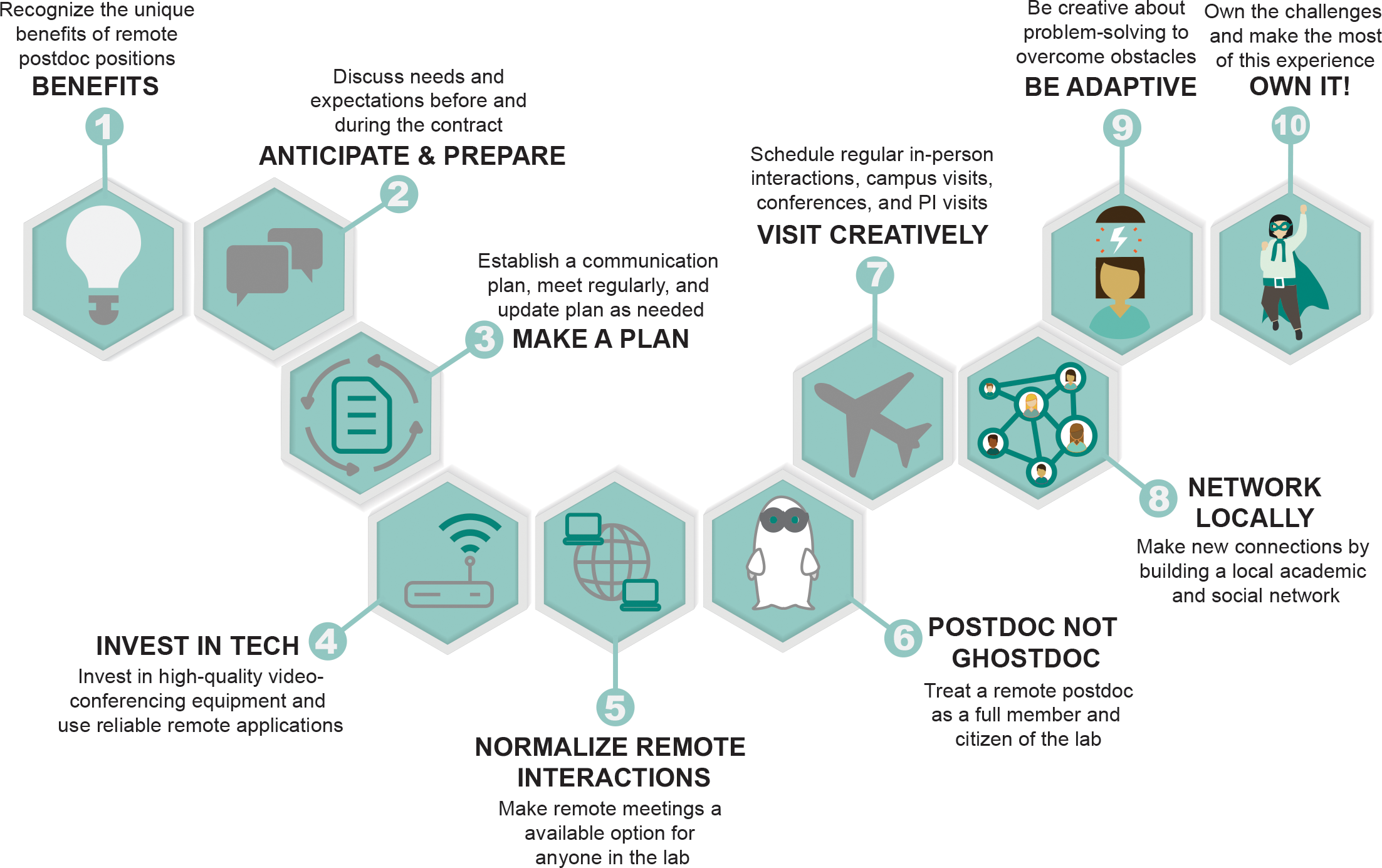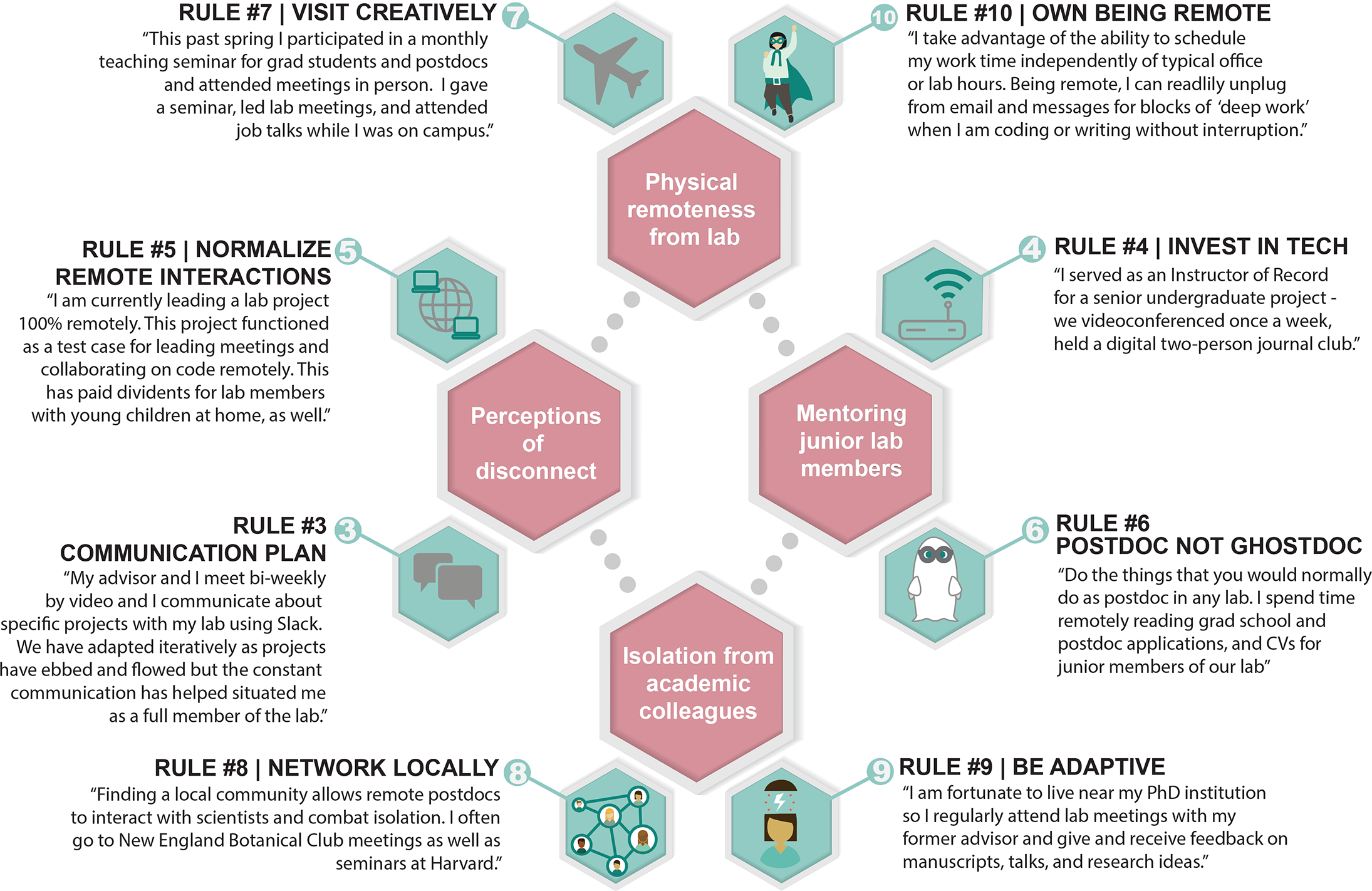Journal Club: Immigrant experiences and remote postdocs
Every so often, I will post a summary and some thoughts or reflections on papers that have come across my desk in the last week and I’ve had a chance to read. If you publish or find any papers you think I’d find interesting or want me to talk about, please contact me and let me know!
This week, I read a commentary piece on being an immigrant in Europe; a timely guidelines for doing postdoc work remotely; and results from an intervention strategy targeting graduation rates for undergraduate STEM students.
Are You Still a Postdoc? How My Scientific Identity Intersects with My Immigrant Status by Emma Hernandez-Sanabria in mSphere
Being an immigrant researcher can bring a unique set of challenges to an early career researcher: logistical, legal and cultural. As an immigrant to the U.S., I was interested to read this personal perspective of a postdoc from Mexico, and their experiences in the UK and EU.
Some of the experiences - like annual renewal of temporary visas - are hoops I have had to jump through myself. But I haven’t heard the perspective of a Latina researcher in Europe before, nor the kinds of issues they encounter - many of which I think will resonate with U.S. based Latinx researchers. I particularly note that Hernandez-Sanabria discusses feeling the necessity to mentor, and mentor well, and this certainly overlaps with perspectives I’ve read about or heard from minoritized researchers in the U.S. - I think it’s fair to say that the following sentence could have been written here too:
Awareness of the privileges that I accessed as a result of my earlier education and my experiences as an immigrant prompted me to act as an example of a minority (immigrant/Latina researchers) that needs visibility and that is frequently stereotyped as lazy, overly emotional, and superficial.
Overall, the piece gives food for thought on an immigrant perspective that is likely not well documented, and provides a call for the need for further support for and appreciation of people in this position. Hernandez-Sanabria finishes on a note that likely resonates with immigrant researchers worldwide:
We do not want to take the place of or be someone else. We want the opportunity to be ourselves and use our distinctive backgrounds and capabilities to benefit STEM in achieving their inclusive and scientific objectives.
Ten Simple Rules for a successful remote postdoc by Kevin R. Burgio, Caitlin McDonough MacKenzie, Stephanie B. Borrelle, S. K. Morgan Ernest, Jacquelyn L. Gill, Kurt E. Ingeman, Amy Teffer, Ethan P. White in PLoS Computational Biology
Coinciding with a time where working remotely is becoming more common - and the ability to do so at least partially is becoming more necessary - this piece provides guidelines for the unique challenges to consider about postdoccing remotely, from those who have either mentored remote postdocs, or postdocced remotely themselves.
My key takeaway from this was Rule 8 - combating isolation. Postdoc positions already have a strong potential to be isolating, even when in a physical lab environment, so paying attention to the combined effect with working remotely is key to maintaining a productive and healthy working environment.
I’ve listed the ten rules below! Check out the paper for the details. The figures below from the paper also nicely summarize the rules and quotes relating to them - you can download them as powerpoint slides from the paper itself.
Rule 1: Recognize the benefits of remote postdocs
Rule 2: Plan for remote work from the beginning
Rule 3: Establish a communication plan
Rule 4: Invest in and use video conferencing
Rule 5: Normalize remote interactions and cultivate digital spaces for the entire lab
Rule 6: Remote postdocs are full members of the lab
Rule 7: A little in-person interaction goes a long way; maximize it by being creative
Rule 8: Actively work to combat isolation
Rule 9: Develop adaptive problem-solving skills
Rule 10: Own and promote mentoring or being a remote postdoc
Reframing Achievement Setbacks: A Motivation Intervention to Improve 8-Year Graduation Rates for Students in Science, Technology, Engineering, and Mathematics (STEM) Fields (paywalled*) by Jeremy M. Hamm, Raymond P. Perry, Judith G. Chipperfield, Steve Hladkyj, Patti C. Parker, Bernard Weiner in Psychological Science
This research paper caught my attention as it relates to my interest in retention in undergraduate STEM majors, and the work I do as part of the steering committee of the Inclusive Environments and Metrics in Biology Education Research (iEMBER) Network. This network is bringing together researchers, educators and policymakers across a wide range of disciplines to experiment in and effect change around undergraduate STEM education to address factors that affect retention of undergraduates from minoritized populations in STEM.
In this study, researchers look at the effect of a motivational intervention strategy on graduation rates in STEM. Essentially, the intervention seeks to reframe students’ causal attributions for their achievement outcomes as being due to controllable, rather than uncontrollable, factors. Previous work has shown that attribution of failure to such causes can increase the chance a student will persist in a course of study. The intervention therefore sought to use a reframing of failure to promote academic persistence for students in STEM who had low high school grades.
The study did find that such an intervention can increase persistence to graduation and the authors propose that this may be particularly effective in seeking to address the gap between persistence in students with low high school grades versus those with high high school grades.
One caveat is that all students under consideration in the study were from cohorts in intro psychology classes. This therefore may not apply across all STEM students. However the study suggests there could be similar interventional strategies developed to address persistence in STEM majors.
*paywalled - this paper is behind a paywall, and there are no legally-available copies. To obtain a copy, please contact the authors.


